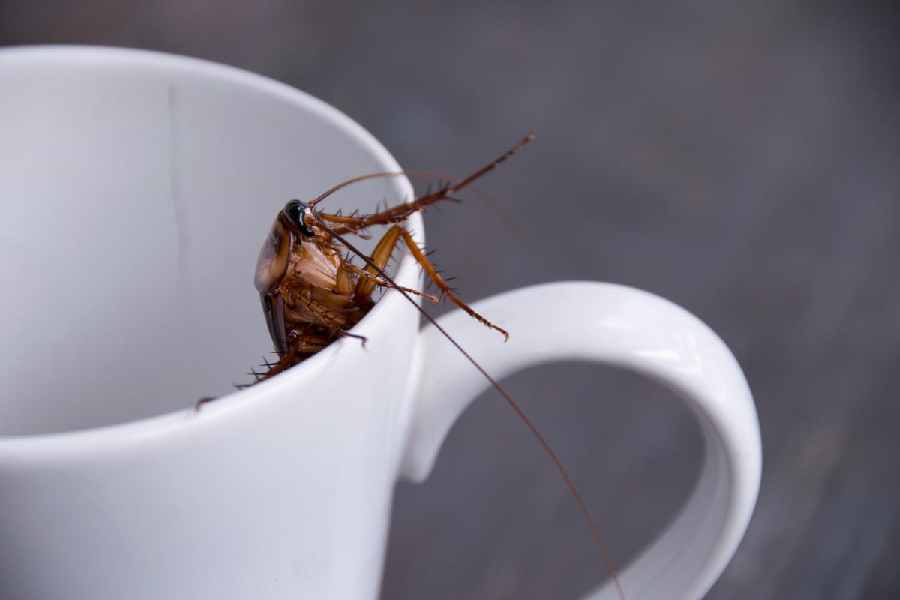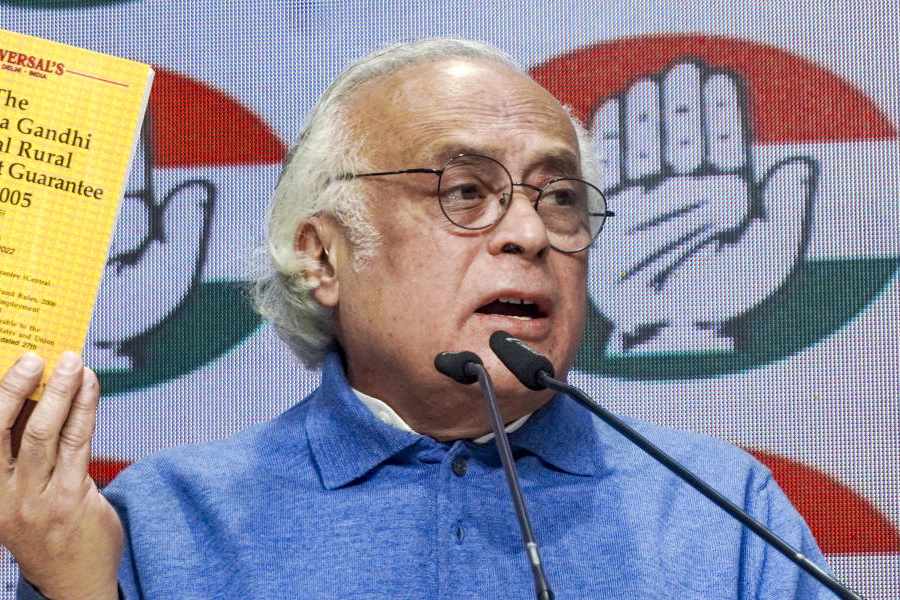Taste test
Sir — For those who had walked into a cafe and been confused and annoyed at the prospect of choosing between oat, almond, soy, cow and lactose-free milk will not be happy about current developments. The latest trend in this lactose-free wellness market is cockroach milk, especially the kind derived from the species, Diploptera punctata. This is three times as nutritious as cow milk and contains three times as many calories as buffalo milk. Cockroaches are known for their resilience — it is nigh impossible to get rid of cockroaches as those who have faced an infestation would vouch for — but now that humans have found a way to exploit cockroaches, there is no doubt that even cockroaches will soon be driven to the brink of extinction.
Ruchira Roy,
Gurugram
Better half
Sir — The editorial, “Feminine touch” (Mar 8), proposes the appointment of more women in leadership positions, especially in peace negotiations. It cites the example of female leaders who have carried out successful peace negotiations, such as the former German chancellor, Angela Merkel, and the former foreign minister of South Africa, Naledi Pandor, who helped prevent a full-blown Russia-Ukraine conflict in 2014 and bring into effect a ceasefire in Gaza, respectively. Women and children are generally the worst affected by political and economic crises. Naturally, female leaders are better at finding solutions to such crises too.
Sukhendu Bhattacharjee,
Hooghly
Sir — Across the globe, women have played pivotal roles in conflict resolution. During the Liberian civil war, the women’s grassroots movement under Leymah Gbowee forced warring factions to negotiate. Similarly, in Colombia, the Gender Subcommission led by women cemented a peace deal that prioritised justice and reconciliation, laying the foundation for sustainable peace efforts. In India, women’s groups like the Naga Mothers’ Association have persistently called for peace, engaging with insurgent groups and mediators to create a platform for reconciliation. Yet, their efforts often operate on the fringes with no formal recognition in official records.
It is foolish to deny peace negotiations the transformative perspectives that women can offer. Studies show that women negotiate beyond political gains; they prioritise welfare, rehabilitation, and human security. These aspects ensure lasting peace by addressing the roots of conflict. India is home to diverse conflicts — be it in Jammu and Kashmir or Northeast — and must actively include women as negotiators and leaders in peace processes.
Nilachal Roy,
Siliguri
Sir — It is high time we rid society of outdated prejudices that label women as the weaker sex. Two quotes by Margaret Thatcher shall illustrate this point: “In politics, if you want anything said, ask a man. If you want anything done, ask a woman.” And “When I’m out of politics I’m going to run a business, it’ll be called rent-a-spine.”
Avinash Godboley,
Dewas, Madhya Pradesh
Sir — The historical under-representation of women in leadership positions globally and at diplomatic negotiation tables has led to the underutilisation of their potential. The exceptional role played by women leaders around the world, including Jacinda Ardern and Angela Merkel, in navigating their respective nations through the Covid-19 pandemic is proof of women’s leadership capabilities. Virtues like tolerance, empathy and pragmatism make women perfectly equipped to lead climate justice pacts, peace negotiations and so on.
Prasun Kumar Dutta,
West Midnapore
Sir — Women have a tactful approach that men lack. This is borne out by data that show that peace deals last longer when women are involved in their drafting. This fact should be kept in mind by global leaders during future geopolitical negotiations so that there can be lasting peace on the planet.
Fateh Najamuddin,
Lucknow
Useful fund
Sir — The announcement of a monthly allowance scheme for women on International Women’s Day by the chief minister of Delhi is a step in the right direction. This also shows that the Bharatiya Janata Party is serious about fulfilling its poll promises.
C.K. Subrahmaniam,
Navi Mumbai
Sir — The Mahila Samridhi Yojana will benefit women between the ages of 18 and
60 years from families with an annual income of up to Rs 2.5 lakh. To those living below the poverty line, a monthly stipend of Rs 2,500 can be a lot.
Bhagwan Thadani,
Mumbai
Classic revisited
Sir — The re-release of Satyajit Ray’s film, Nayak, will give older generations a chance to revisit this classic and young people a chance to experience Ray on the big screen (“Uttam Kumar and Satyajit Ray are there, isn’t that enough? It sure is”, Mar 8). What makes the film deeply relevant even today is that it touches upon issues such as suicide and loneliness that continue to plague society. The re-release of Nayak will also encourage organisers to restore and release other classics.
Somnath Mukherjee,
Calcutta
Sir — The re-release of Satyajit Ray’s classic film, Nayak, in theatres is a welcome step. This film about a popular actor who struggles with insecurity imparts valuable lessons to the youth who struggle to find purpose, belonging and a sense of identity.
Jayanta Datta,
Hooghly
Sir — One should go watch Nayak on the big screen just to experience the screen presence of Uttam Kumar. It is a treat to watch films like Mahanagar and Nayak in theatres. One hopes more Ray films are being restored.
Achintya Sinha,
Calcutta











